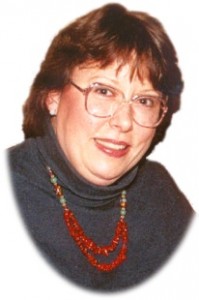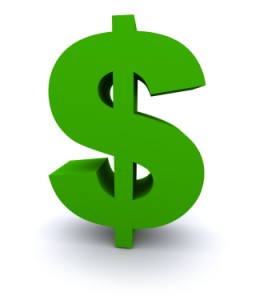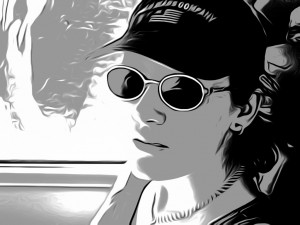
Hello all! Continuing the “5 Questions” series today we have Cynthia Clampitt with us…
If you, or someone you know wants to answer these questions and send them in with a bio and photo, we’d be happy to share the interview with the online community. Just drop us a line at: editor (at) freelance-zone (dot) com.
1. How did you wind up a writer?
Actually, I’ve always been a writer. The issue for me was not how I became a writer, but rather how I finally got to the place where I knew it was okay—necessary even— to be a professional writer. When I was growing up, writing was considered the sort of thing you did as a hobby, at least if you wanted to have any kind of income. So I spent 10 years in big, international corporations. I occasionally had fun (I enjoy solving problems, and corporations have lots of those) and succeeded beyond expectations. But I never felt like I was in the right place. Still working full time, I started graduate school at Northwestern, English Lit, figuring that maybe academe would be home. At the end of my first year, a professor wrote on one of my papers that I was a great writer, but unfortunately, great writers didn’t necessarily make great scholars. He meant it as scathing criticism, but for me, it was like my fairy godmother had hit me with her wand and broken the spell. I was supposed to be a writer. From that moment, I started plotting my escape. I would save up enough money to leave the corporate world and give myself a couple of years to start my career over again.
2. Was the road to being a writer what you expected? Why or why not?
Yes and no. I had expected it to be a lot of work, but I didn’t realize how long it would take. I also rather naively believed that writing well was enough. I’ve had to learn a great deal about marketing and self-promotion. Being a freelance writer is like being in a constant state of applying for jobs. Occasionally, you find an editor who loves your work and assigns an article every month, but that’s becoming increasingly rare, as magazines cut back. Then when my book, Waltzing Australia, came out, I had a whole new set of marketing skills to learn.
These lines from Slim Dusty’s song “Walk A Country Mile” always resonated for me, as they sum up what it’s like on the road to being a writer:
You meet a friend or two along the highway
And you’ll learn a lot you never knew before
And if the journey takes a lifetime
When you thought a year or two
Well you just don’t give up easy anymore.
3. What has been your best moment or biggest accomplishment as a writer?
I’d say there are two easily identifiable high points: the moment I realized I was going to make it, back at the beginning of my writing career, and a few years ago, when my book came out.
4. What has been your most difficult moment?
There have been a lot of difficult moments. It’s kind of the nature of freelancing. However, I’d say the toughest time has been in recent years, as magazines and publishers who have been reliable clients over the years have either folded or started sending work overseas. Suddenly, I need to reinvent my career again.
5. Can you share your top piece of writing advice with Freelance-Zone readers?
When I talk to groups about writing, I have several rules I share that I consider immutable. Number 1 is “Care Deeply.” There are three potential things to care about: the audience, the subject, and the craft of writing. You don’t actually have to care about all three; caring about the subject is actually optional. As a writer, there will be times, if you want to eat and pay the rent, that you have to write about topics that mean little to you (though if you are a truly curious person, there will be few things that don’t have some interest value). However, if you care about the audience and the craft of writing, you can still have a good time and turn out good work. But if you don’t care at all, it will show. It usually appears as sloppy and/or pedestrian work.
Remember, even if you’re writing about the painting on the side of trucks (which I’ve done), if you think about the audience and the craft of writing, you can still get excited about the task, if not the topic. This is not just about the ethics of doing good work when you’re being paid. This is about surviving as a writer. Succeeding as a writer is hard work, and if you don’t care, you won’t last.
BIO: Cynthia Clampitt has been a full-time freelance writer for 25 years. She loves history, geography, food (especially food history and culture), travel, and language. She is the author of the award-winning travel narrative, Waltzing Australia, and keeps two blogs, http://www.theworldsfare.org and http://www.waltzingaustralia.com.




 I’m a sucker for nautical stuff. I grew up sailing in Massachusetts, and as Arizona desert rats, our family heads out to Californian waters as often as we can — and thanks to my laptop, I can even do freelancing aboard when necessary. Last week, we sailed back from Catalina Island to Long Beach, California, after a few days of spring break. It’s about 25 miles, usually with a decent breeze. Under good conditions you can see the mainland the entire 4 to 5 hour trip.
I’m a sucker for nautical stuff. I grew up sailing in Massachusetts, and as Arizona desert rats, our family heads out to Californian waters as often as we can — and thanks to my laptop, I can even do freelancing aboard when necessary. Last week, we sailed back from Catalina Island to Long Beach, California, after a few days of spring break. It’s about 25 miles, usually with a decent breeze. Under good conditions you can see the mainland the entire 4 to 5 hour trip.